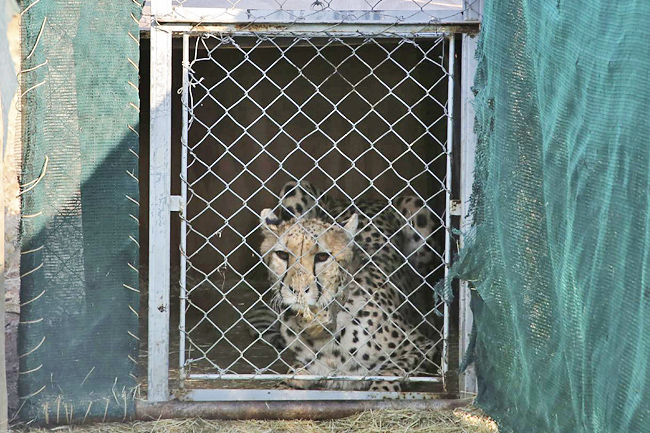NEW DELHI (AFP) – India announced yesterday the birth of four cubs to one of the cheetahs that were relocated from Namibia, decades after they were declared extinct in the South Asian country.
India’s Environment Minister Bhupender Yadav tweeted a photo and video of the cubs, calling it a “momentous event”.
“Wonderful news,” tweeted Prime Minister Narendra Modi.
Eight Namibian cheetahs arrived in India last year as part of an ambitious project to reintroduce the spotted big cats, the world’s fastest land animal.
A second cheetah from Namibia is also due to deliver soon, according to Indian media reports.
Last month, 12 more cheetahs were brought to India from South Africa.

The announcement of the new cubs comes just days after one of the eight Namibian cheetahs died at the Kuno National Park, a wildlife sanctuary 320 kilometres south of New Delhi, due to kidney failure.
India was once home to the Asiatic cheetah but it was declared extinct there in 1952.
The critically endangered subspecies, which once roamed across the Middle East, Central Asia and India, are now only found, in very small numbers in Iran.
Cheetahs became extinct in India primarily because of habitat loss and hunting for their distinctive spotted coats.
An Indian prince, the Maharaja Ramanuj Pratap Singh Deo, is widely believed to have killed the last three recorded cheetahs in India in the late 1940s.
The cheetah is listed globally as “vulnerable” on the International Union for the Conservation of Nature Red List of Threatened Species.







